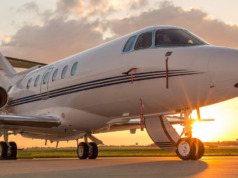
When purchasing an aircraft, choosing the right advisor will have a significant impact on your budget and your satisfaction. As you interview three or four prospective advisors, consider these five important factors:
- Experience – Look for an advisor with a proven track record of ten years or more with the type and size of aircraft you are interested in purchasing, as the marketplace has changed dramatically in just the past few years. He or she should be knowledgeable about historical trends and their potential implications for you.
- References – The most valuable references will come from trusted colleagues in the same industry as you, as they can best understand your needs and travel requirements.
- Resources – What organizational resources are at the advisor’s disposal? Is there an in-house technical advisor who will conduct aircraft-specific flight and maintenance evaluations, plus in-house council to help you negotiate the acquisition? If these functions are outsourced, does the advisor have a long-standing working relationship with the vendors?
- Proximity – An advisor based in your geographic region could facilitate the purchase process by saving you time and money.
- Clear methodology – As you interview prospective advisors, pay careful attention to the questions they ask you, and to their ability to help you formulate answers to those you cannot answer immediately. Be open to their suggestions as to which type or types of aircraft would be best for you, even if those aren’t the exact make and model you desire. Does the advisor have a well-defined process to evaluate the different aircraft in the market, and a clear plan to present that material to you, to help you move forward with the acquisition?
The advisor you choose should ask you several detailed, interrelated questions about your travel profile, the financial component of aircraft purchase and ownership, as well as your expected exit strategy.
At a minimum, expect to be asked these questions:
Travel Profile:
- Where is your home base? Where will your aircraft be hangered? The closest hangar may be neither the most convenient, nor the most cost effective.
- Where do you travel? Do you travel frequently to the same destination(s)? Is most of your travel planned well ahead, or do you make frequent, unplanned, or multi-stop trips?
- Who will use the aircraft? Will it be just you, or your executives, customers, or family? If there are conflicting travel needs, by what process will you decide preference?
Financial:
- What is your budget for aircraft acquisition, for operations, and for any technical, safety, or cosmetic upgrades you may need immediately or want to install later?
- Is a new or a used aircraft best for you? What are the tax implications of each?
- How will you finance your purchase? Are your expectations realistic, given the market for the aircraft you want, and your own credit situation?
- How will you operate the aircraft? Will it be used only for you and your company, or do you plan to make it available for charter? Your advisor should be able to provide an accurate assessment of the market demand for potential charter revenue on your operating costs.
- Will you create your own flight department, or will you use a management company? What are the operational and financial impacts of each choice?
Exit Strategy:
- How long do you expect to own the aircraft? Five, seven, and ten years are common ownership periods.
- What will be the estimated residual value when you sell the aircraft? In recent years, for example, the value of mid- to large-size aircraft has gone down significantly. Your advisor can provide a realistic forecast.
The right advisor will ask the right questions, help you explore your best options, and make expert recommendations to enable you to make the best and most enjoyable use of your aviation investment. BAA
Don Haloburdo is VP and General Manager of Jet Aviation Flight Services, Inc. A former U.S. Navy pilot, he has more than 7,100 hours flight time, and serves on NATA’s Air Charter Committee.




